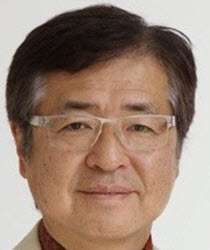Commentary
Japan and the Expansion of the Liberal International Order
Nobukatsu Kanehara examines the establishment of the liberal international order and explores how Japan and other democracies can defend against evolving threats to it. Kanehara is a Professor at Doshisha University in Kyoto, Japan, and a member of the NBR Board of Directors.
Today, we are living in a world community called “the liberal international order.” But we should remember that this liberal international order emerged on a global scale only toward the end of the last century. Before that, humans had to go through many atrocities, including two world wars, revolutions, dictatorships, discrimination of every sort, colonization, violence, and bloodshed. Human society went through a long, bloody, and dark tunnel before arriving here.
The liberal international order was mainly created by the Western industrial nations. The West, however, is shrinking. The G-7 (comprising the leading nations of the West along with Japan) accounted for around 70% of global production in 1990. It represents less than 50% today. Instead, the G-20 is becoming more relevant than the G-7.
We are thus now at an inflection point. Is the liberal international order created by the West being marginalized or is it expanding? This commentary examines the establishment of the liberal international order and explores how Japan and other democracies can defend against evolving threats to it.
The Establishment of the Liberal International Order
To understand how today’s liberal international order was established, we should have common narratives of world history. Asian and African countries have different narratives of history. When Western nations were establishing themselves as democracies during the eighteenth and nineteenth centuries, they were occupying countries in Asia and Africa as fierce and harsh colonial rulers, trampling on the dignity and sovereignty of other civilizations. Racial discrimination was the status quo, and there was even a pseudoscientific theory called “social Darwinism.”
The liberal international order spread not only because democratic Western nations could beat totalitarian challengers like Nazi Germany, Fascist Italy, militarist Japan, and Communist Russia, but also because the West itself had undergone positive changes. First, Western countries began to accept the self-determination of Asian and African countries. There can be no freedom or democracy when the sovereignty and dignity of entire countries and populations are denied.
There were many independence war heroes, but we cannot forget the contributions of spiritual leaders. Mahatma Gandhi’s movement of “satyagraha” demonstrated that the British colonial rule simply goes against core Western values: human dignity, love, conscience, freedom, democracy, and rule of law. No less important than Gandhi is Reverend Martin Luther King Jr. of the United States. Because of the civil rights movement and the progress in dismantling institutionalized racial discrimination, the United States could become the leader of the liberal international order, exactly at the time when Asian and African countries were obtaining independence.
Toward the end of the twentieth century, many Asian nations jumped to join the camp of democracy one by one. The Philippines was the first in 1986, and then South Korea in 1987. Other nations followed. In 1996, Taiwan turned democracy under President Lee Teng-hui. Many democracies in Asia, however, are still experimental, and it is Japan’s responsibility to help with this process. For it is Japan that started to digest and integrate the Western parliamentary system and political philosophy over 150 years ago, with both glorious successes and bitter failures.
Threats to the Liberal International Order
Russian president Vladimir Putin made a historic mistake by invading Ukraine. He is haunted by the dream of the resurrection of “great Russia” and disregarded the free will of the Ukrainian people, causing the deaths of innocent lives in Ukraine. The outcome so far has been disastrous for Russia. Ukraine is determined to maintain sovereignty, and Sweden and Finland could soon accede to NATO. The war in Ukraine has shown that the West, if united, can still maintain a liberal world order.
Similar to Russia with Ukraine, China is determined to annex Taiwan by any means, and a war over Taiwan’s sovereignty could be the next threat to the world order. China tried to swallow Taiwan economically during the presidency of Ma Ying-jeou (2008–16). But angry students in Taipei stormed the parliament in 2014, showing that the new identity of “free Taiwan” has been firmly rooted on the island. Today’s young Taiwanese students only know a free and democratic Taiwan and abhor the idea of becoming a part of Communist China.
China is frightened by this new Taiwanese identity, for the Communist state has not succeeded in producing a multiethnic national identity. Instead, the Chinese Communist Party (CCP) is relying more and more on the nationalism of ethnic Hans, while alienating minority groups such as the Uighurs, Tibetans, and Mongolians. In this context, Taiwan’s self-determination would have unacceptable implications for China, potentially accelerating the self-determination movement among the ethnic minorities in China. Taiwan has a population of over 23 million people and a G-20–sized economy. The CCP will never accept Taiwan’s self-determination because doing so could lead to the dismantling of today’s Communist China.
Addressing the Threats to the Liberal International Order
The precondition of the expansion of the liberal international order is stability and security on a global scale. Although Russia’s invasion of Ukraine threatens world order, the biggest concern is the rise of China. China’s economy is approaching the size of the U.S. economy, and its military challenges the U.S. military for regional supremacy. The most likely scenario for a military clash between the West and China is over Taiwan. The U.S. Pacific alliance system is based on the Japan-U.S. alliance. The U.S. forces defend South Korea, Taiwan, and the Philippines, using the U.S. bases in Japan under Article 6 of the Japan-U.S. Security Treaty.
Since signing the treaty, Japan has tried to enhance the deterrence of the alliance beyond simply letting U.S. forces use Japanese bases. Japan, for example, agreed to join its forces in noncombat operations of U.S. forces in contingencies nearby. This decision was made in 1999 under Prime Minister Obuchi Keizo. And in 2015, Prime Minister Abe Shinzo finally decided to join the Japan Self-Defense Forces in combat operations.
China’s economy is now three times as large as that of Japan and its military budget is five times as large, without counting the R&D budget. This is amazing, for China’s economy was the size of Japan’s economy only ten years ago. To back up the decision of Prime Minister Abe, Prime Minister Kishida Fumio has decided to double the military budget of Japan, making it the third biggest military budget on earth, and he for the first time ordered Japan to acquire modest offensive capabilities to deter possible aggressors. Prime Minister Kishida has also prioritized multilateral engagement with Japan’s allies and partners as a countermeasure against China.
To deter China from military aggression, all the free nations should gather under the flag of protecting a “free and open Indo-Pacific.” To sustain this framework, the Quad (Japan, the United States, Australia, and India) was revived, and Australia, the United Kingdom, and the United States established the AUKUS partnership. The European Union and NATO should be included in efforts to sustain the world order on the Eastern edge of the Eurasian continent. Although NATO has limited geographic responsibility in Asia, there is no special limitation in cyberspace, where it could cooperate with Japan.
Can we cope with the Chinese challenge? Cumulatively, the West is still double the size of China in economic terms. The comprehensive power of Western countries—namely, their united power in the military, economic, and cultural domains—is far bigger than China’s. If united, the West can still engage China from a position of strength and deter it from attempting to annex Taiwan by force. Western countries can dissuade China with the possibilities of economic sanctions and collective military response.
If, however, the West surrenders Taiwan to Beijing, nobody in Asia, or globally, will accept the leadership of the West. Asian nations will deplore that Western countries helped Ukraine but abandoned Asian democracies. The West must demonstrate resilience and maintain its credibility by showing that its principles are not for sale nor transactional for economic interests provided by China.
In this connection, the United States should reconsider the policy of strategic ambiguity toward Taiwan whereby it refuses to make clear whether it would participate in a war against China if China were to attack Taiwan. The traditional rationale for the policy is that the United States does not want to provoke China too much nor encourage Taiwan to declare independence. But it would be safer if the United States could make clear that it is committed to maintaining the peace and stability of the Taiwan Strait.
China’s nuclear arsenal is expanding at a great speed. Sooner or later, China will achieve nuclear parity with the United States. In that case, the two countries must establish transparency and mutual trust, as the United States and Soviet Union did during the Cold War and beyond. After the United States enters the new nuclear era of mutual deterrence with China, the ambiguity policy over Taiwan invites a great risk. The nuclear umbrella should be extended to Taiwan at some moment in order to guarantee the cold peace of the Taiwan Strait.
Nobukatsu Kanehara is a Professor at Doshisha University in Kyoto, Japan, and a member of the NBR Board of Directors. He served as assistant chief cabinet secretary to Prime Minister Abe Shinzo from 2012 to 2019. In 2013, he also became the inaugural deputy secretary-general of the National Security Secretariat.
Note: This commentary is adapted from a speech delivered at the University of Pennsylvania on February 20, 2023. The views are those of the author.



